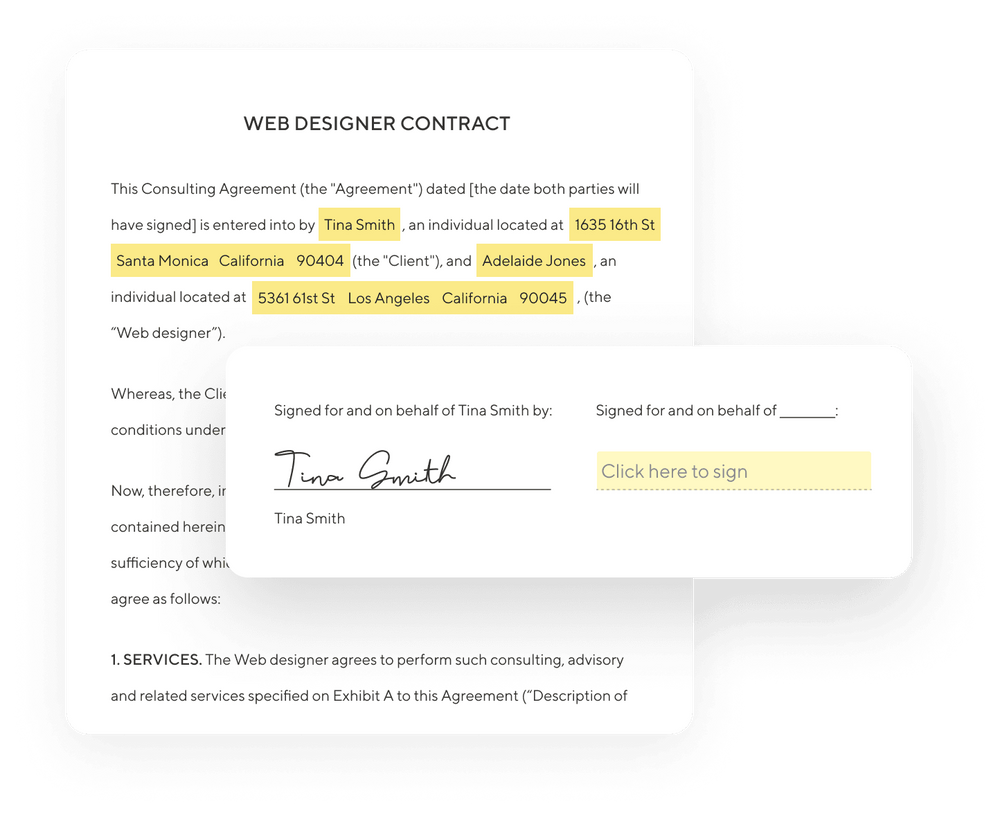Many businesses hire freelance contractors to help with various tasks such as bookkeeping, marketing, design, accounting, and more. Working with independent professionals offers several advantages like affordability, flexibility, and access to specialized knowledge.
However, there might come a time when you need to reconsider your collaboration. For example, circumstances within or outside your control might cause you to cancel a freelance contract. The reasons can vary, but one thing is clear: When a working relationship ends, it's always better for all parties to leave on good terms.
Let's go through the different reasons you might need to end a freelance job and how to do this in the best way possible.
Reasons for Ending a Freelance Contract
Circumstances change, and freelance relationships - just like any other relationship - can go sour. This is normal and, to some degree, expected. Chances are, if you are a contractor or work with one providing professional services, you are used to new faces and altering scenarios. There are many reasons to end a freelance project. They can be financial, logistical, or strategical, among others.
Financial Reasons
One of the main reasons freelancer contracts end is due to changes in budgets, expenses, and income. When a company's finances adjust, contractors' relationships can be affected, too. For example:
- The company has decided to use a new hire - usually a full-time or part-time employee.
- The company can no longer pay the freelancer's fees.
- The freelancer's rates have changed, and the company can no longer afford the person.
- The business is not doing as well as expected, and there is not enough return to continue paying a contractor.
- The company is downsizing.
Contractual Reasons
A freelancing contract can also end because someone in a contract position has failed to meet their obligations as stated in an agreement. Some contract clauses might have been broken or not followed correctly - for example, payment terms, deliverables, or scope. Some common reasons that can lead to a freelance or contract job ending can include:
- The freelancer has failed to complete a project or has done so in a lacking manner.
- The freelance client is asking for free work.
- The freelancer has missed deadlines or delivers work late consistently.
- There are disagreements over what the work scope entails.
- The contractor is not representing the company adequately and can damage its reputation.
- The freelancer is working with other clients or doing an additional contract job without authorization.
- The contract has not been renewed or renegotiated.

Strategical and Logistical Reasons
Sometimes, the reason a freelance job ends has to do with changes in strategy - or they can just be logistical. Priorities change, so it's not uncommon for businesses to want to move on. For example:
- The company has decided to relocate.
- You were hired to work on short-term projects or for a certain amount of time, and the plan is taking a new direction.
- A business is changing a remote freelance job to in-person or a contact position from in-person to remote.
- Priorities have switched to other projects or departments.
- The strategy has changed, and the contractor's services are no longer required.
Other Reasons
There are many other reasons why either party might want to end a contract job. These can include:
- As per your contractual right, you have decided to terminate the agreement.
- The contractor or the client has an unprofessional attitude and/or poor communication (or the client is a bad client).
- The contractor has agreed to take on a full-time position, is cutting back on the number of clients for whom they work, or has decided to work with a recruiter.
Who Can End a Freelance Contract?
Both the freelancer and the client can determine that the working relationship has come to an end. In most cases, this is done to benefit all parties involved and without significant complications - particularly if you're working with a solid contract. Your contract should state the notice period and list various reasons for canceling or terminating the agreement.
Notice Period
Most freelance contracts have a clause stating how much notice you must give to terminate the job. For example, many agreements stipulate that you are required to provide 30 days written notice, although two weeks' notice is also a popular choice. In any case, you will usually need to send a formal termination letter to inform your client or contractor that the freelance work is ending. Your contract might also include any fees and reimbursements in the case of termination and who will pay for them.
Force Majeure
Suppose you are ending the contract due to causes beyond your control, such as natural disasters or other unforeseen circumstances. In that case, you are usually entitled to terminate the contract without notice (this is called 'Force Majeure, and many agreements include it as a clause).
What's the Best Way to End a Freelance Contract?
The short answer: The best way to end a freelance contract is on good terms! You don't know if you might work together again in the future, and it's never a good idea to burn a bridge - no matter how damaged it's become.
The first thing you should do when you decide to end a contract is to contact the other party and explain the reasons behind your decision. You can do this in different ways.
The Medium
You can decide how to get in touch depending on your usual communications with the contractor or client. A phone call is usually best if your work history goes back, but emails can be appropriate in most circumstances - as they also give you a written document you can track.
Disagreements
You should be prepared to face some resistance on the other party's part. The decision that a freelance contract must end might not be mutual, so it's always better to have your answers on hand. A good contract should help you explain your reasons and determine the next best steps.

Wrapping Up
Now it's time to prepare a plan for wrapping up your work. Include things like any pending deliverables, outstanding payments, and access to software or web apps. Lastly, don't forget to express your gratitude for the time you shared - pleasant or challenging.
Why Contracts Are Crucial for Freelancers
A key to having a successful business (as a freelancer or someone who works with one) is to have a good contract.
Some people will go through their work-life encountering very few issues. Most of us, though, will have to face misunderstandings and misaligned expectations sooner or later. Disagreements about scope and problems with payment are just some of the common scenarios when working as or with contractors. A freelance contract can help you communicate your expectations and define clear rules for costs and fees, deadlines, deliverables, etc. And if things go wrong, you will be able to find a solution without using costly legal services from a law firm.
The best way to protect all parties involved is to work with a legally sound contract to help you understand the law, get paid on time, define milestones, and protect your intellectual property. Good contracts will also cover the different terms and conditions for termination.
It's Okay to End a Contract
When you need to terminate a freelance contract, it is normal to feel a little frustrated. Sometimes, things just don't work out. If something doesn't feel right during the course of your work, it's always better to cut your losses and make sure you take proactive steps not to let it happen again.
For example, you can re-evaluate your vetting process and take more time to evaluate a client or contractor. And you can set clearer expectations from the beginning to avoid future misunderstandings. Of course, nobody can predict how a working relationship will go. So whatever you decide, keep in mind you are creating smarter habits and doing your best to protect your business.
How Indy Can Help you Manage (and End) Your Contracts
There are many reasons to end a freelance contract. Finances change, personalities clash, or life just gets in the way. The best way to make sure both parties can come to a satisfactory conclusion is to have a solid contract in place. If you are unsure what to include in yours, you don't need to worry.
With Indy, you can create, send, and sign legally vetted freelance contracts in just minutes. Indy is a single-stop freelancing platform with all the tools you need to run your business. One significant advantage is that Indy connects all your contracts with a client and can generate electronic signatures.
Indy offers a powerful contract template that can be customized to your needs. A licensed attorney has checked all of Indy's agreements, including, of course, their cancellation and termination clauses.



